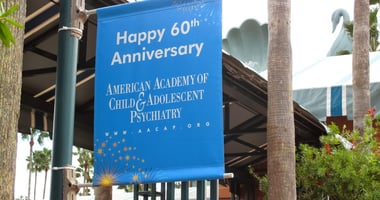A new study of predictors and moderators of remission for treatment-resistant major depressive...
Pharmacogenetic-Guided Treatment Shows No Benefit Over Standard Treatment for Adolescents With MDD

Adolescents with major depressive disorder (MDD) who receive treatment guided by pharmacogenetic testing appear to show similar improvements over time as those who did not receive guided treatment, according to a report in the Journal of the American Academy of Child & Adolescent Psychiatry.
“Despite great initial enthusiasm and a surge of companies offering pharmacogenetics testing for psychiatric medications, controversy within the psychiatric field regarding the utility of pharmacogenetics testing is widespread,” wrote Jennifer L. Vande Voort, M.D., of the Mayo Clinic and colleagues. Few studies have examined whether treatment guided by such tests is associated with better outcomes in youth with depression compared with those receiving standard care.
Vande Voort and colleagues randomly assigned 176 adolescents aged 13 to 18 with moderate to severe MDD (score ≥40 on the Children’s Depression Rating Scale-Revised [CDRS-R]) to one of two groups:
- GENE: Physicians treating participants in the GENE group received the participants’ pharmacogenetic testing results at the baseline visit.
- TAU: Physicians treating participants in the treatment as usual (TAU) group did not receive the participants’ pharmacogenetic testing results until after the eight-week visit.
The participants were seen by a psychiatrist and completed assessments at baseline, weeks 4 and 8, and 6 months. These assessments included the CDRS-R, Quick Inventory of Depressive Symptomatology (QIDS), Children’s Global Assessment Scale (CGAS), and Young Mania Rating Scale (YMRS). Throughout the trial, psychiatrists were asked to record the reasons for medication decisions, such as whether the decision was based on pharmacogenetics testing or clinical judgment.
“This study found that participants in both the GENE and TAU arms improved throughout the duration of the study, and there was no statistical difference in improvement between the two arms on the CDRS-R, QIDS, and CGAS,” the authors reported. “In addition, there was no statistical difference in YMRS scores or the number of adverse events/side effects between the GENE and TAU arms throughout the duration of the study.”
The authors noted that although selective serotonin reuptake inhibitors (SSRIs) were the most frequently prescribed medications for participants in both treatment arms, the TAU arm had nearly 15% more SSRIs prescribed than the GENE arm.
“Pharmacogenetics testing held a great deal of promise as the gateway to personalized medicine. … [U]nfortunately, the field is not there yet, and clear clinical utility for commercial combinatorial platforms in adolescents with depression remains elusive,” Vande Voort and colleagues wrote. Future studies should explore “whether concordance (defined as when the clinician’s treatment recommendation matches the pharmacogenetics testing report of ‘use as directed’) is associated with greater response/remission rates or lower side effect burden when compared to nonconcordant treatment,” they advised.
For related information, see the Psychiatric News articles “Pharmacogenomic Tests in Psychiatry: Not Ready for Prime Time” and “Task Force on Gene Testing for Antidepressant Efficacy Concludes Tests Not Yet Ready for Widespread Use.”






